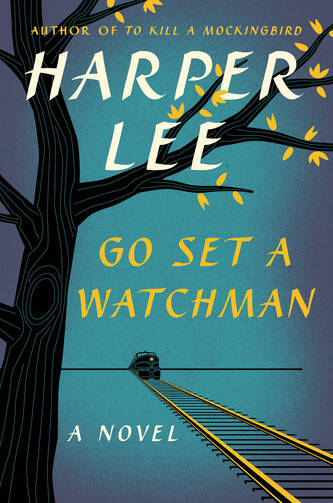Like almost every avid reader, I was fascinated by the story of the release of a newly discovered book by Harper Lee, author of the classic novel To Kill a Mockingbird. Her novel Go Tell a Watchman, released today by HarperCollins, tells the story of "Jean Louise," also known as Scout, one of the most beloved of all characters in American literature. Today we conducted a brief interview with Michael Morrison, HarperCollins' president and publisher, US General Books and Canada.
America: First of all, congratulations, Mr. Morrison, on what is surely the biggest publishing coup of the year, if not the decade. Why do you think Harper Lee decided to publish a book that was, in essence, a first draft?
Mr. Morrison: Go Set a Watchman is not a first draft of To Kill a Mockingbird. When submitted, Go Set a Watchman received promising comments from the editor who Harper Lee would eventually work with. That editor suggested that Harper Lee put the manuscript aside and focus on writing a story from the young Scout’s point of view. Although some of the characters are the same, they are two distinct books. I think that knowing that she wouldn’t have to edit the book—or more importantly that she wouldn’t have to do publicity—allowed her to finally want to have the book published.
Am: What was your reaction upon reading the manuscript for the first time?
Morrison: I was thrilled to be back in a world that Harper Lee created. Go Set a Watchman has so much heart, wit and intelligence. It covers so many of the most important issues of our times—race, religion, family, politics, women’s role in society—that I was excited to have readers around the world get a chance to read this profound novel.
Am: "Jean Louise," aka Scout, is one of the most famous characters in all American fiction, and Harper Lee one of our greatest authors. Was it a challenge for the editors at HarperCollins to do even a "light edit" on the manuscript, given the reputation of To Kill A Mockingbird?
Morrison: Our editors didn’t edit the book; they did a light copyedit. They fixed misspellings, punctuation, etc. Very little.
Am: A number of reviewers have suggested that the novel will tarnish readers' image of Atticus Finch, given some of his rather racist views. On the other hand, couldn't the book be seen simply as an earlier version of that character, and thus the version of Atticus that many have come to admire can remain intact? Has it changed your own admiration for Atticus?
Morrison: Readers will have to make up their own minds on that one. But the Atticus of Go Set a Watchman seems more a man of the times than the Atticus of To Kill a Mockingbird.
Am: Are there any other books by Harper Lee in the offing?
Morrison: Not that we know of!








